blog
Report from Fermenting Data workshop at Innovercity, Hannover
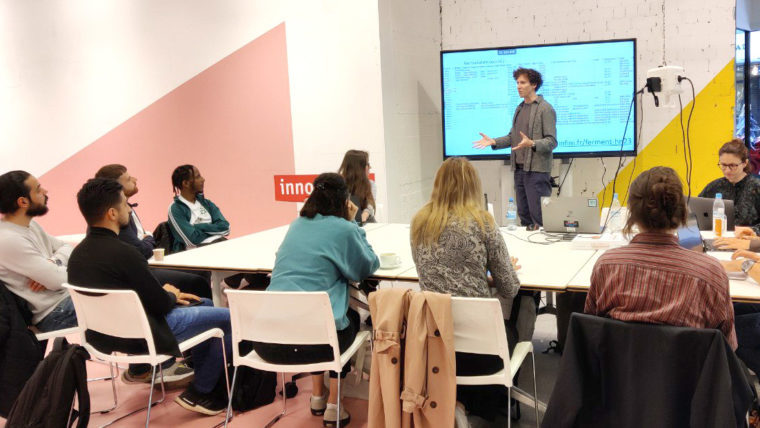
Innovercity the new hands-on science initiative from Hannover’s University of Applied Sciences (HsH) opened its doors at the beginning of June. The Joint Lab of TIB and HsH kicked off with a workshop as the first event to take place in the newly designed, flexible areas in the old shopping centre building in Hanover's city centre. "Fermenting Data" brought HsH students with a focus on Data Science, Web Data Management and Library Science together with Researchers and Professors from HsH, the Open Science Lab (TIB), Aarhus University and TU Berlin. The workshop inaugurated Innovercity's central work and study area “Sofa-Talk”. Students got to learn about alternative approaches and methods to collecting, structuring and thinking with data promoted by the framework of the Fermenting Data project, which has evolved over the past 3 years through different stages involving exhibitions and collaborations with artists as well as members of the general public.
Why Fermenting Data?
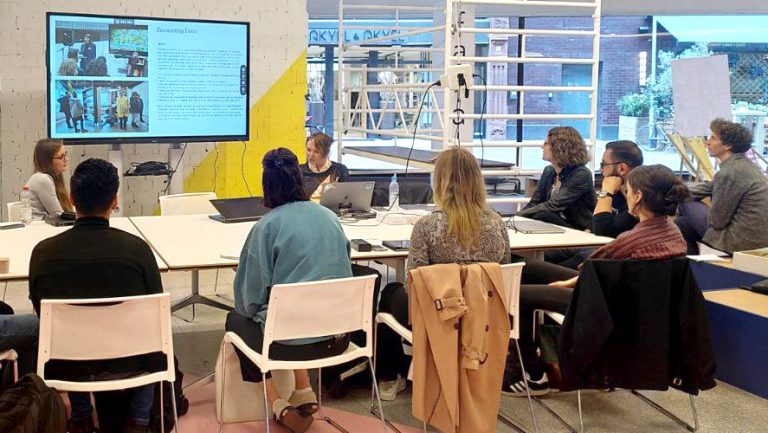
The project focuses on a topic that is typically outside the scope of most Information Science programs – namely intangible cultural heritage, such as different traditions to preparing food in symbiosis with other living organisms, i.e. bacteria. At the same time, the ‘lively’ nature of the topic allows to engage with a broad public - providing an accessible platform to discuss more complex issues connected to how we understand and relate to data, including data tracking and surveillance, protection of sensitive data, data provenance and trustworthiness, and more. There are many subjective factors in the cultural practice of fermentation, ranging from the way recipes are interpreted and performed, to how we perceive taste, smell and other sensory aspects of the products resulting from fermentation processes. These subjective factors influence and complicate the way fermentation activities can be objectively described into data statements.
Modeling social, sensory and process data
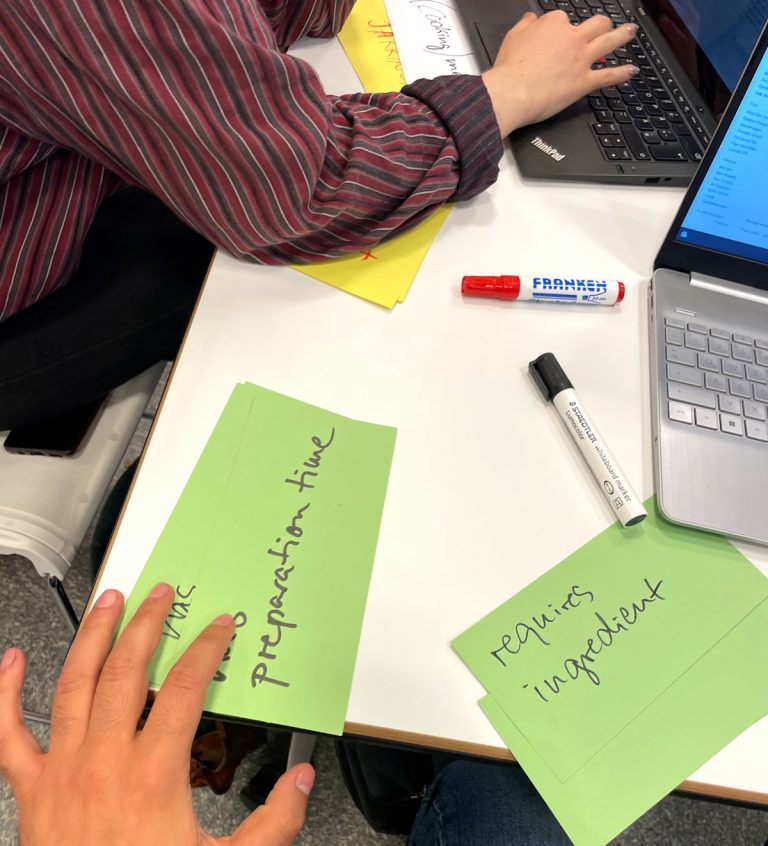
At the workshop, data gathered around the project at several past events was presented to students who are trained in collecting, parsing and structuring data as part of their formal study programme. They had the chance to examine and comment on the state of previous data collecting sprints and to work with sample data in order to prepare a new data model that can be used to structure the existing data.
Working in three groups, students and workshop facilitators proposed classes and properties to describe the data along three main themes: 1. social data - relating to people, recipes, and preparation methods; 2. sensory data - relating to taste, smell and color perception; and 3. process data - relating to the biological processes and organisms involved in the different temporal stages of fermentation. The results of each group were then recorded in a dedicated Wikibase instance (Wikibase is the free and open source software tool for managing Linked Open Data, maintained by Wikimedia Germany and developed further at TIB with the project NFDI4Culture).
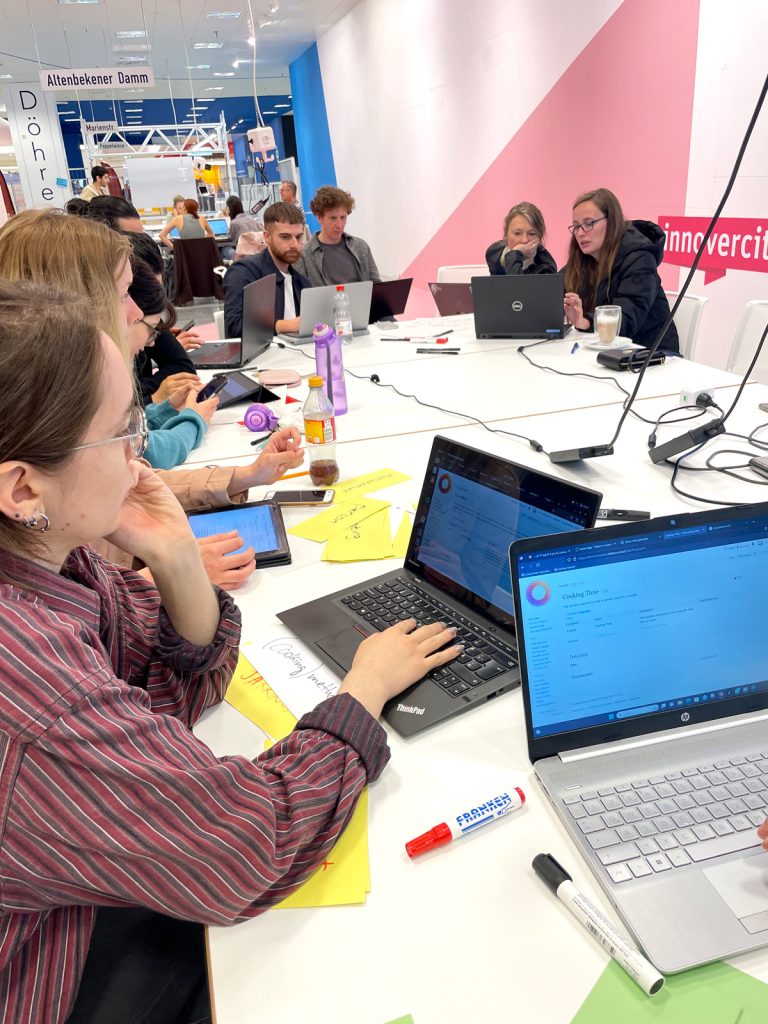
Thinking about the data organization in the specific context of Wikibase surfaced new questions. Bringing data model categories from all three groups into a single database influenced choices on setting consistent rules for statements which require additional qualification, e.g. quantitative or qualitative measurements (for recipe ingredients or degrees of taste perception). Students also raised new questions as to how the raw data needs to be collected, for example, with regards to the subjectivity of color perception that varies from one observer to the next.
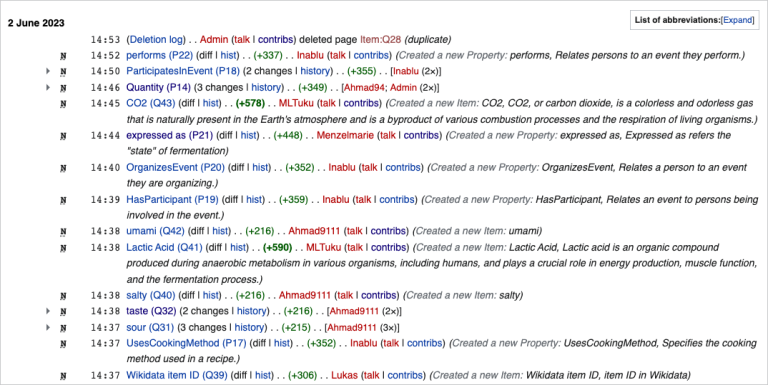
The workshop is just part of a longer-term series, so the findings of this edition will be taken into future events, and moreover the Wikibase instance will become the main repository of data for the project, so the students’ work will be tested further and refined with other groups of workshop participants in the future. Results from this workshop and several past events will also be gathered and published into a paper dedicated to the topic of curating data and the specific context of linked open data as a data structuring framework.
Originally published on the TIB blog TIB blog
Tags: blog, workshop, research, data, Linked Open Data, LOD